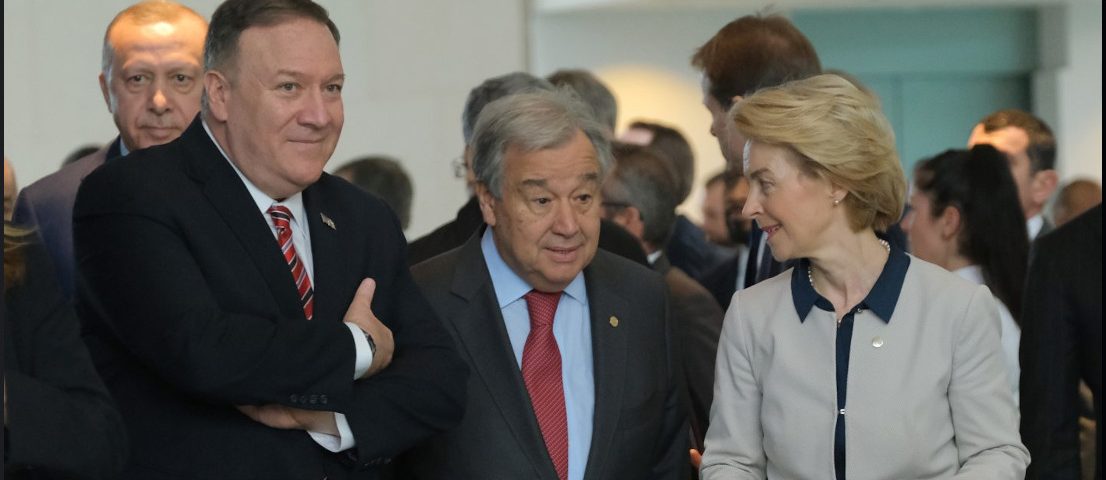From Venezuelanalysis, February 22, 2021
Mérida 2/22 – Venezuela has blasted the imposition of additional European Union (EU) sanctions against nineteen politicians, state officials and security chiefs.
According to an EU statement released Monday, the individuals are penalised for their alleged role in “acts and decisions undermining democracy and the rule of law” or “as a result of serious human rights violations.”
Similarly, the EU accused some of the targeted figures of “undermining the oppositions’ electoral rights and the democratic functioning of the National Assembly” in reference to Venezuela’s parliamentary elections on December 6, 2020.
The elections, in which over 100 parties and 14,400 candidates took part, were overwhelmingly won by the ruling United Socialist Party (PSUV) and an on-the-ground international observer team deemed the contest free and fair. The EU chose not to send an observer mission and later followed Washington in claiming the results to be invalid.
Among those sanctioned this week by the EU wereZulia Governor Omar Prieto (PSUV); Vice Interior Minister Manuel Perez; National Electoral Council President Indira Alfonzo and Rectors Tania D’Amelio and Leonardo Morales; and Supreme Court Judges Luis Damiani, Calixto Ortega, Lourdes Suarez, Rene Degraves, Arcadio Delgado and Carmen Zuleta.
Equally targeted were a number of police and military chiefs, including Remigio Ceballos (Armed Forces), Jose Miguel Dominguez (FAES Special Forces), Jesus Vasquez (Military Police), Carlos Carballo and Carlos Teran (Military Counterintelligence) and Douglas Rico (CICPC investigative police).
Finally, two opposition lawmakers — Jose Brito (Justice First party) and Bernabe Gutierrez (Democratic Action party) — were also sanctioned. Both rose to lead their respective parties after the Supreme Court ruled on internal party power struggles.
Those sanctioned will have all European-based assets frozen and travel bans applied. Most had been previously sanctioned by Washington.
The EU first imposed sanctions against Venezuela in 2017, and has 55 individuals blacklisted following the latest round. Its Caracas ambassador was briefly expelled from Venezuela in 2020 after a wave of measures against the country.
While many of its member states have opted to follow the US sanctions regime to differing degrees, the EU has not copied Washington’s sweeping embargoes which have devastated Venezuela’s economy and oil industry, rather favouring arms embargoes and individual measures. Many European firms, however, have withdrawn from Venezuela in fear of secondary sanctions from Washington, including British online payment operators Skrill and Neteller over the weekend.
Nonetheless, EU sanctions, as well as those of the US and others, have been described as “collective punishment” and “human rights violations” by independent analysts and UN agencies, respectively. The Venezuelan government has filed a lawsuit at the International Criminal Court arguing that the US-led blockade amounts to a “crime against humanity.”
Maduro hits back
As the latest sanctions were announced, President Nicolas Maduro spoke at the 46th session of the UN Human Rights Council in Geneva.
During his intervention, the president denounced an “inquisition and intervention” into Venezuela’s internal affairs, as well as over 450 unilateral coercive measures against the country.
He also highlighted a recent report from the UN Special Rapporteur on the Impact of Sanctions Alena Douhan, which specified the “devastating” impact and called for them to be “revised and lifted.”
“[Sanctions regimes have] demonstrated great cruelty, even during the pandemic, as well as contravening calls from the international community,” Maduro told the Council. He went on to refer to EU and US sanctions as “ideologised provocations from a group of governments.”
Venezuela has developed a respectful working relationship with the UN’s Office of the High Commissioner for Human Rights in recent months, heeding to demands to pardon imprisoned opposition activists and even opening a local office for the institution in Caracas. Despite being elected to the body in 2019, the Latin American nation has, however, had a more rocky relationship with the Human Rights Council, which has emitted reports on Venezuela which independent analysts described as “unbalanced.”
Venezuela demands respect for Vienna Convention
Diplomatic tensions also ran high over the weekend as Caracas denounced a wave of xenophobia against its emigrant communities and violations of the Vienna Convention in Peru.
Angry protestors attacked Venezuela’s embassy building in Lima on Saturday, causing structural damage and chanting xenophobic slogans against the populous Venezuelan community, in the wake of reports that a Venezuelan assassinated a Peruvian man in Colombia last week.
The aggression is the latest in a wave of xenophobic episodes against Venezuelans in Peru, which has seen at least one migrant killed in reprisal attacks in recent days. Venezuelan communities elsewhere have also seen widespread discrimination in recent years, especially in Colombia, Brazil and Peru.
Venezuela’s Foreign Ministry called on Peruvian authorities to safeguard the embassy on Sunday, as well as protecting its diplomatic team and Venezuelan migrants who are subject to “unacceptable discrimination and xenophobic campaigns [being used] to obtain electoral advantage.”
It likewise called on the Colombian government to launch a full investigation and arrest those responsible for the murder which sparked the protests, “regardless of origin or nationality.”
[UPDATE] On Wednesday, the Maduro government declared the EU ambassador to Caracas Isabel Brilhante Pedroso “persona non grata” and ordered her to leave the country within 72 hours. Diplomatic protests were also formally launched with the French, Spanish, Dutch and German governments over the latest sanctions.
*Featured Image: US Secretary of State Mike Pompeo, United Nations Secretary-General Antonio Guterres, and European Commission President Ursula von der Leyen attend an international summit on securing peace in Libya in Berlin on 19 January 2020. (Credit: Sean Gallup/Getty Images News/Getty Images Europe).
